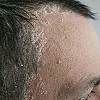Antipsychotic drugs for dementia
Concern about this issue is not new. A federal law passed in 1987 provides that residents in facilities receiving government support should not receive antipsychotics for problems that are simply inconvenient for caregivers—such as wandering, insomnia, or uncooperativeness—but only for agitated, aggressive, or psychotic behavior that is distressing to the patients or dangerous to others. But the guidelines have not prevented continued heavy use in institutions for the elderly.
To continue reading this article, you must log in.
Subscribe to Harvard Health Online for immediate access to health news and information from Harvard Medical School.
- Research health conditions
- Check your symptoms
- Prepare for a doctor's visit or test
- Find the best treatments and procedures for you
- Explore options for better nutrition and exercise
I'd like to receive access to Harvard Health Online for only $4.99 a month.
Sign Me UpAlready a member? Login ».
Disclaimer:
As a service to our readers, Harvard Health Publishing provides access to our library of archived content. Please note the date of last review or update on all articles.
No content on this site, regardless of date, should ever be used as a substitute for direct medical advice from your doctor or other qualified clinician.












